43 start with F start with F

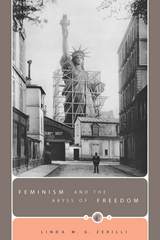
Offering both a discussion of feminism in its postmodern context and a critique of contemporary theory, Zerilli here challenges feminists to move away from a theory-based approach, which focuses on securing or contesting "women" as an analytic category of feminism, to one rooted in political action and judgment. She revisits the democratic problem of exclusion from participation in common affairs and elaborates a freedom-centered feminism as the political practice of beginning anew, world-building, and judging.
In a series of case studies, Zerilli draws on the political thought of Hannah Arendt to articulate a nonsovereign conception of political freedom and to explore a variety of feminist understandings of freedom in the twentieth century, including ones proposed by Judith Butler, Monique Wittig, and the Milan Women's Bookstore Collective. In so doing, Zerilli hopes to retrieve what Arendt called feminism's lost treasure: the original and radical claim to political freedom.
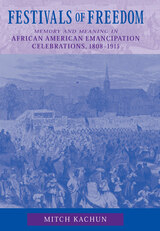
Excluded from July Fourth and other American nationalist rituals for most of this period, black activists used these festivals of freedom to encourage community building and race uplift. Kachun demonstrates that, even as these annual rituals helped define African Americans as a people by fostering a sense of shared history, heritage, and identity, they were also sites of ambiguity and conflict. Freedom celebrations served as occasions for debate over black representations in the public sphere, struggles for group leadership, and contests over collective memory and its meaning.
Based on extensive research in African American newspapers and oration texts, this book retraces a vital if often overlooked tradition in African American political culture and addresses important issues about black participation in the public sphere. By illuminating the origins of black Americans' public commemorations, it also helps explain why there have been increasing calls in recent years to make the "Juneteenth" observance of emancipation an American—not just an African American—day of commemoration.
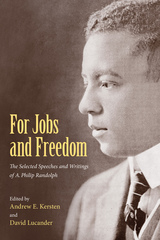
This volume documents Randolph's life and work through his own writings. The editors have combed through the files of libraries, manuscript collections, and newspapers, selecting more than seventy published and unpublished pieces that shed light on Randolph's most significant activities. The book is organized thematically around his major interests—dismantling workplace inequality, expanding civil rights, confronting racial segregation, and building international coalitions. The editors provide a detailed biographical essay that helps to situate the speeches and writings collected in the book. In the absence of an autobiography, this volume offers the best available presentation of Randolph's ideas and arguments in his own words.
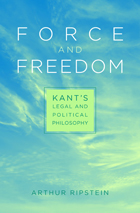
In this masterful work, both an illumination of Kant’s thought and an important contribution to contemporary legal and political theory, Arthur Ripstein gives a comprehensive yet accessible account of Kant’s political philosophy. Ripstein shows that Kant’s thought is organized around two central claims: first, that legal institutions are not simply responses to human limitations or circumstances; indeed the requirements of justice can be articulated without recourse to views about human inclinations and vulnerabilities. Second, Kant argues for a distinctive moral principle, which restricts the legitimate use of force to the creation of a system of equal freedom. Ripstein’s description of the unity and philosophical plausibility of this dimension of Kant’s thought will be a revelation to political and legal scholars.
In addition to providing a clear and coherent statement of the most misunderstood of Kant’s ideas, Ripstein also shows that Kant’s views remain conceptually powerful and morally appealing today. Ripstein defends the idea of equal freedom by examining several substantive areas of law—private rights, constitutional law, police powers, and punishment—and by demonstrating the compelling advantages of the Kantian framework over competing approaches.

In September 1945, after the fall of the atomic bomb--and with it, the Japanese empire--Asia was dominated by the British. Governing a vast crescent of land that stretched from India through Burma and down to Singapore, and with troops occupying the French and Dutch colonies in southern Vietnam and Indonesia, Britain's imperial might had never seemed stronger.
Yet within a few violent years, British power in the region would crumble, and myriad independent nations would struggle into existence. Christopher Bayly and Tim Harper show how World War II never really ended in these ravaged Asian lands but instead continued in bloody civil wars, anti-colonial insurrections, and inter-communal massacres. These years became the most formative in modern Asian history, as Western imperialism vied with nascent nationalist and communist revolutionaries for political control.
Forgotten Wars, a sequel to the authors' acclaimed Forgotten Armies, is a panoramic account of the bitter wars of the end of empire, seen not only through the eyes of the fighters, but also through the personal stories of ordinary people: the poor and bewildered caught up in India's Hindu-Muslim massacres; the peasant farmers ravaged by warfare between British forces and revolutionaries in Malaya; the Burmese minorities devastated by separatist revolt. Throughout, we are given a stunning portrait of societies poised between the hope of independence and the fear of strife. Forgotten Wars vividly brings to life the inescapable conflicts and manifold dramas that shaped today's Asia.
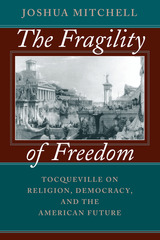
Focusing on Democracy in America, The Fragility of Freedom examines Tocqueville's key works and argues that his analysis of democracy is ultimately rooted in an Augustinian view of human psychology. As much a work of political philosophy as of religion, The Fragility of Freedom argues for the importance of a political theology that recognizes moderation.
"An intelligent and sharply drawn portrait of a conservative Toqueville."—Anne C. Rose, Journal of American History
"I recommend this book as one of a very few to approach seriously the sources of Tocqueville's intellectual and moral greatness."—Peter Augustine Lawler, Journal of Politics
"Mitchell ably places Democracy in America in the long conversation of Western political and theological thought."—Wilfred M. McClay, First Things
"Learned and thought-provoking."—Peter Berkowitz, New Republic
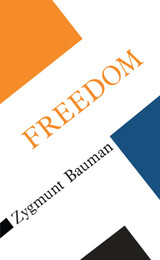
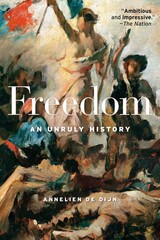
Winner of the PROSE Award
An NRC Handelsblad Best Book of the Year
“Ambitious and impressive…At a time when the very survival of both freedom and democracy seems uncertain, books like this are more important than ever.”
—The Nation
“Helps explain how partisans on both the right and the left can claim to be protectors of liberty, yet hold radically different understandings of its meaning…This deeply informed history of an idea has the potential to combat political polarization.”
—Publishers Weekly
“Ambitious and bold, this book will have an enormous impact on how we think about the place of freedom in the Western tradition.”
—Samuel Moyn, author of Not Enough
“Brings remarkable clarity to a big and messy subject…New insights and hard-hitting conclusions about the resistance to democracy make this essential reading for anyone interested in the roots of our current dilemmas.”
—Lynn Hunt, author of History: Why It Matters
For centuries people in the West identified freedom with the ability to exercise control over the way in which they were governed. The equation of liberty with restraints on state power—what most people today associate with freedom—was a deliberate and dramatic rupture with long-established ways of thinking. So what triggered this fateful reversal? In a masterful and surprising reappraisal of more than two thousand years of Western thinking about freedom, Annelien de Dijn argues that this was not the natural outcome of such secular trends as the growth of religious tolerance or the creation of market societies. Rather, it was propelled by an antidemocratic backlash following the French and American Revolutions.
The notion that freedom is best preserved by shrinking the sphere of government was not invented by the revolutionaries who created our modern democracies—it was first conceived by their critics and opponents. De Dijn shows that far from following in the path of early American patriots, today’s critics of “big government” owe more to the counterrevolutionaries who tried to undo their work.

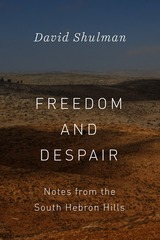
David Shulman knows intimately what it takes to live your beliefs, to return, day after day, to the struggle, despite knowing you are often more likely to lose than win. Interweaving powerful stories and deep meditations, Freedom and Despair offers vivid firsthand reports from the occupied West Bank in Palestine as seen through the eyes of an experienced Israeli peace activist who has seen the Israeli occupation close up as it impacts on the lives of all Palestinian civilians.
Alongside a handful of beautifully written and often shocking tales from the field, Shulman meditates deeply on how to understand the evils around him, what it means to persevere as an activist decade after decade, and what it truly means to be free. The violent realities of the occupation are on full display. We get to know and understand the Palestinian shepherds and farmers and Israeli volunteers who face this situation head-on with nonviolent resistance. Shulman does not hold back on acknowledging the daily struggles that often leave him and his fellow activists full of despair. Inspired by these committed individuals who are not prepared to be silent or passive, Shulman suggests a model for ordinary people everywhere. Anyone prepared to take a risk and fight their oppressive political systems, he argues, can make a difference—if they strive to act with compassion and to keep hope alive.
This is the moving story of a man who continues to fight for good in the midst of despair. An indispensable book in our era of reactionary politics and refugee crises, political violence and ecological devastation, Freedom and Despair is a gripping memoir of struggle, activism, and hope for peace.
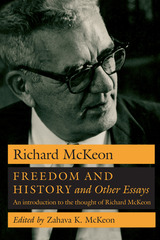
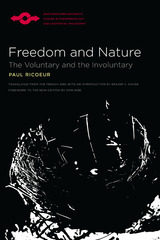
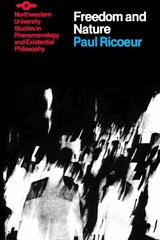
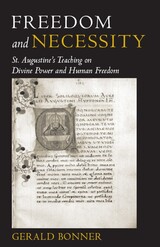
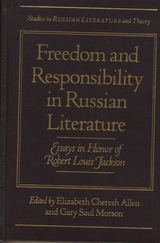
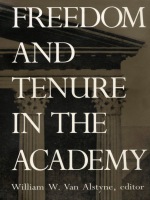
The original 1940 Statement of Principles on Academic Freedom and Tenure, which has been influential in determining institutional practices for the last half century, has required continual redefinition since its initial declaration. The volume begins with two overview articles: the most complete examination of the 1940 Statement ever provided (shedding light on some of its most troublesome clauses) and a historical review of the extent to which academic freedom has been accepted into domestic constitutional law. Subsequent articles address a range of issues related to academic freedom: the relationship between tenure and academic freedom; tenure and labor law; ideology and faculty selection; freedom of expression and the arts on campus; the boundaries defining hate speech and offensive expression; the clash between institutional and individual claims of academic freedom; and the practices of religious colleges in the United States.
Contributors. Ralph S. Brown, Matthew W. Finkin, Jordan E. Kurland, Michael W. McConnell, Walter P. Metzger, Robert M. O'Neil, David M. Rabban, Rodney A, Smolla, Janet Sinder, Judith Jarvis Thomson, William W. Van Alstyne
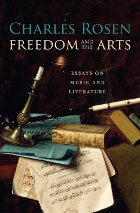
Is there a moment in history when a work receives its ideal interpretation? Or is negotiation always required to preserve the past and accommodate the present? The freedom of interpretation, Charles Rosen suggests in these sparkling explorations of music and literature, exists in a delicate balance with fidelity to the identity of the original work.
Rosen cautions us to avoid doctrinaire extremes when approaching art of the past. To understand Shakespeare only as an Elizabethan or Jacobean theatergoer would understand him, or to modernize his plays with no sense of what they bring from his age, deforms the work, making it less ambiguous and inherently less interesting. For a work to remain alive, it must change character over time while preserving a valid witness to its earliest state. When twentieth-century scholars transformed Mozart’s bland, idealized nineteenth-century image into that of a modern revolutionary expressionist, they paradoxically restored the reputation he had among his eighteenth-century contemporaries. Mozart became once again a complex innovator, challenging to perform and to understand.
Drawing on a variety of critical methods, Rosen maintains that listening or reading with intensity—for pleasure—is the one activity indispensable for full appreciation. It allows us to experience multiple possibilities in literature and music, and to avoid recognizing only the revolutionary elements of artistic production. By reviving the sense that works of art have intrinsic merits that bring pleasure, we justify their continuing existence.

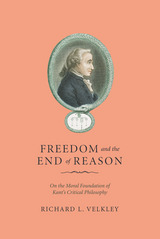
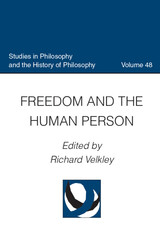
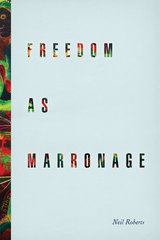
Roberts examines the liminal and transitional space of slave escape in order to develop a theory of freedom as marronage, which contends that freedom is fundamentally located within this space—that it is a form of perpetual flight. He engages a stunning variety of writers, including Hannah Arendt, W. E. B. Du Bois, Angela Davis, Frederick Douglass, Samuel Taylor Coleridge, and the Rastafari, among others, to develop a compelling lens through which to interpret the quandaries of slavery, freedom, and politics that still confront us today. The result is a sophisticated, interdisciplinary work that unsettles the ways we think about freedom by always casting it in the light of its critical opposite.

A unique interreligious dialogue provides needed context for deeper understanding of interfaith relations, from ancient to modern times
Freedom is far from straightforward as a topic of comparative theology. While it is often identified with modernity and even postmodernity, freedom has long been an important topic for reflection by both Christians and Muslims, discussed in both the Bible and the Quran. Each faith has a different way of engaging with the idea of freedom shaped by the political context of their beginnings. The New Testament emerged in a region under occupation by the Roman Empire, whereas the Quran was first received in tribal Arabia, a stateless environment with political freedom.
Freedom: Christian and Muslim Perspectives, edited by Lucinda Mosher, considers how Christian and Muslim faith communities have historically addressed many facets of freedom. The book presents essays, historical and scriptural texts, and reflections. Topics include God's freedom, human freedom to obey God, autonomy versus heteronomy, autonomy versus self-governance, freedom from incapacitating addiction and desire, hermeneutic or discursive freedom vis-à-vis scripture and tradition, religious and political freedom, and the relationship between personal conviction and public order.
The rich insights expressed in this unique interfaith discussion will benefit readers—from students and scholars, to clerics and community leaders, to politicians and policymakers—who will gain a deeper understanding of how these two communities define freedom, how it is treated in both religious and secular texts, and how to make sense of it in the context of our contemporary lives.
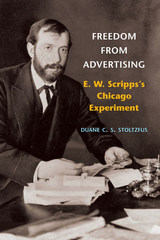
Though the Day Book’s financial losses steadily declined over the years, it never became profitable, and publication ended in 1917. Nevertheless, Stoltzfus explains that the Day Book served as an important ally of workers, a keen watchdog on advertisers, and it redefined news by providing an example of a paper that treated its readers first as citizens with rights rather than simply as consumers.
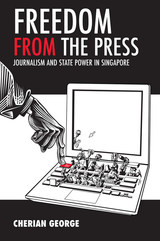
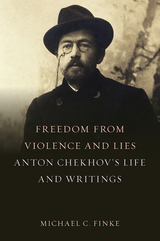
Anton Chekhov’s stories and plays endure, far beyond the Russian context, as outstanding modern literary models. In a brief, remarkable life, Chekhov rose from lower-class, provincial roots to become a physician, leading writer, and philanthropist, all in the face of a progressive fatal disease. In this new biography, Michael C. Finke analyzes Chekhov’s major stories, plays, and nonfiction in the context of his life, both fleshing out the key features of Chekhov’s poetics of prose and drama and revealing key continuities across genres, as well as between his lesser-studied early writings and the later works. An excellent resource for readers new to Chekhov, this book also presents much original scholarship and is an accessible, comprehensive overview of one of the greatest modern dramatists and writers of short fiction in history.

There is, literally, a world of difference between the statements "Everyone should have adequate food," and "Everyone has the right to adequate food." In George Kent's view, the lofty rhetoric of the first statement will not be fulfilled until we take the second statement seriously. Kent sees hunger as a deeply political problem. Too many people do not have adequate control over local resources and cannot create the circumstances that would allow them to do meaningful, productive work and provide for themselves. The human right to an adequate livelihood, including the human right to adequate food, needs to be implemented worldwide in a systematic way.
Freedom from Want makes it clear that feeding people will not solve the problem of hunger, for feeding programs can only be a short-term treatment of a symptom, not a cure. The real solution lies in empowering the poor. Governments, in particular, must ensure that their people face enabling conditions that allow citizens to provide for themselves.
In a wider sense, Kent brings an understanding of human rights as a universal system, applicable to all nations on a global scale. If, as Kent argues, everyone has a human right to adequate food, it follows that those who can empower the poor have a duty to see that right implemented, and the obligation to be held morally and legally accountable, for seeing that that right is realized for everyone, everywhere.

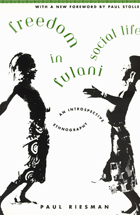
"Freedom in Fulani Social Life richly documents how the ethnographer's own personal and cultural background is implicated in the research process. . . . For this reason, [Riesman's] book will be of paramount interest to all ethnographers."—Philip L. Kilbride, Reviews in Anthropology
"A remarkably well-written and insightful account of Fulani life. . . . In addition to using the conventional approaches of participating in and observing the daily activities of the Jelgobe . . . Riesman enriches his account by examining his personal feelings about particular incidents."—Library Journal
"An interesting and provocative study."—Choice
At the time of his death in 1988, Paul Riesman was an anthropologist who taught at Carleton College.

When a group of young political activists met in 1944 to launch the African National Congress Youth League, it included the nucleus of a remarkable generation of leaders who forged the struggle for freedom and equality in South Africa for the next half century: Nelson Mandela, Oliver Tambo, Walter Sisulu, Jordan Ngubane, Ellen Kuzwayo, Albertina Smith, A. P. Mda, Dan Tloome, and David Bopape. It was Anton Lembede, however whom they chose as their first president.
Lembede, who had just begun practicing law in Johannesburg, was known for his sharp intellect, fiery personality, and unwavering commitment to the struggle at hand. The son of farm laborers from the district of Georgedale, Natal, Lembede had worked tirelessly to put himself through school and college, and then to qualify for the bachelor of laws degree. When he began law practice in 1943, he had also earned the respect of his fellows, not only for his intellectual achievements (which were many), but also for his dedication to the cause of freedom in South Africa. “I am,” he explained, “Africa’s own child.”
His untimely death in 1947 at the age of 33 sent a wave of grief through the Congress Youth, who had looked to him for moral as well as political leadership. With the publication of Freedom In Our Lifetime, the editors acknowledge Lembede’s early contribution to the freedom movement, in particular his passionate and eloquent articulation of the African-centered philosophy he called “Africanism.”
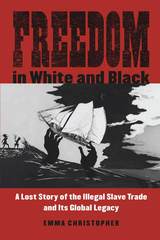
This story can be told because of an exceptional trove of court documents that provides unparalleled insight into one small link in the great, horrific chain of slavery. Emma Christopher follows a trail of evidence across four continents to examine the lives of this barracoon's owners, their workers, and their tragic human merchandise. She reveals how an American, Charles Mason, escaped justice, while British subjects Robert Bostock and John McQueen were arrested. In court five African men—Tamba, Tom Ball, Yarra, Noah, and Sessay—courageously testified against their former owners/captors. They, and 233 other liberated men, women, and children, were relocated to Freetown, Sierra Leone. There they endured harsh lives of "freedom," while the punishment of Bostock and McQueen was fleeting.
From the fragmented facts of these lives, Christopher sheds fascinating light on the early development of the nations of Sierra Leone, Liberia, and Australia (where Bostock and McQueen were banished) and the role of former slaves in combatting the illegal trade.
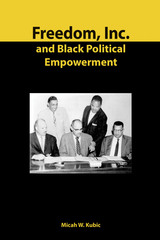
Much has been written about black urban empowerment and about the candidates—particularly the winning candidates—who are the public face of such shifts in power. Authors invariably mention the important role played by black political organizations in electing black officials or organizing communities, but Micah W. Kubic goes further, making, for the first time, one such organization the focus of a book-length study. Kubic tells the story of black political empowerment in Kansas City through the prism of Freedom, Inc., the nation’s oldest existing black political organization.
Using interviews and observation of participants as well as archival research, Kubic offers historical and political analysis of Freedom, Inc. from its founding in 1962 through its role in municipal elections of 2007. Kubic asserts that strong local organizations are living, dynamic organisms and that they, rather than charismatic candidates or interracial alliances, are the crucial players in both determining political outcomes and advancing black interests in urban areas.

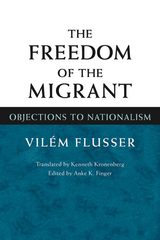
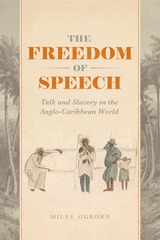
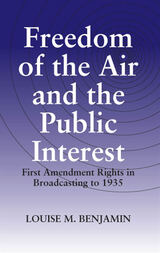
Drawing on primary resources from sixteen archives plus contemporary secondary sources, Benjamin analyzes interactions among the players involved and argues that First Amendment rights in radio evolved in the 1920s and 1930s through the interaction of many entities having social, political, or economic interests in radio. She shows how free speech and First Amendment rights were defined and perceived up to 1935.
Focusing on the evolution of various electronic media rights, Benjamin looks at censorship, speakers’ rights of access to the medium, broadcasters’ rights to use radio as they desired, and listeners’ rights to receive information via the airwaves. With many interested parties involved, conflict was inevitable, resulting in the establishment of industry policies and government legislation—particularly the Radio Act of 1927. Further debate led to the Communications Act of 1934, which has provided the regulatory framework for broadcasting for over sixty years. Controversies caused by new technology today continue to rage over virtually the same rights and issues that Benjamin deals with.
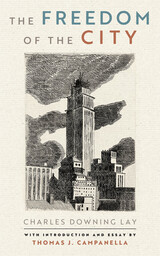
Published in 1926, The Freedom of the City by Charles Downing Lay is an eloquent and timely defense of urbanism and city life. Award-winning author and urban historian Thomas J. Campanella has given Lay’s text new life and relevance, with the addition of explanatory notes, imagery, an introduction, and biographical essay, to bring this important work to a new generation of urbanists.
Lay was decades ahead of his time, writing The Freedom of the City as Americans were just beginning to fall in love with the automobile and leave town for a romanticized life on the suburban fringe. Planners and theorists were arguing that heavily congested cities were a form of cancer, that great metropolitan centers like London and New York City must be decanted into a leafy “garden cities” in the countryside. Lay saved his sharpest pen for these anti-urbanists in his own profession of city and regional planning.
Lay writes of the delights of city life and—especially—that importance of the singular, essential ingredient that makes it all possible: “congestion” (closest in definition to “density” today). Congestion, to Lay, is the secret sauce of cities, the singular element that gives London, Paris, or New York its dynamism and magic. He believed that the amenities and affordances of a city are “the direct result of its great congestion”; indeed, congestion is “the life of the city. Reduce it below a certain point and much of our ease and convenience disappears.
Campanella writes “for all his blind spots, Lay's core argument still obtains. The Freedom of the City was prescient in 1926 and timely now. Certainly, the essentials of good urbanism extolled in the book—human scale, diversity, walkability, the serendipities of the street; above all, density—are articles of faith among architects and urbanists today.”
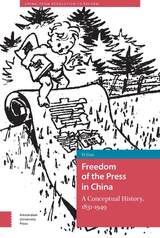
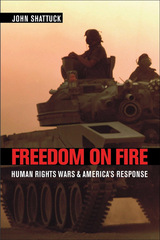
As the chief human rights official of the Clinton Administration, John Shattuck faced far-flung challenges. Disasters were exploding simultaneously--genocide in Rwanda and Bosnia, murder and atrocities in Haiti, repression in China, brutal ethnic wars, and failed states in other parts of the world. But America was mired in conflicting priorities and was reluctant to act. What were Shattuck and his allies to do?
This is the story of their struggle inside the U.S. government over how to respond. Shattuck tells what was tried and what was learned as he and other human rights hawks worked to change the Clinton Administration's human rights policy from disengagement to saving lives and bringing war criminals to justice. He records his frustrations and disappointments, as well as the successes achieved in moving human rights to the center of U.S. foreign policy.
Shattuck was at the heart of the action. He was the first official to interview the survivors of Srebrenica. He confronted Milosevic in Belgrade. He was a key player in bringing the leaders of genocide in Bosnia and Rwanda to justice. He pushed from the inside for an American response to the crisis of the Haitian boat people. He pressed for the release of political prisoners in China. His book is both an insider's account and a detailed prescription for preventing such wars in the future.
Shattuck criticizes the Bush Administration's approach, which he says undermines human rights at home and around the world. He argues that human rights wars are breeding grounds for terrorism. Freedom on Fire describes the shifting challenges of global leadership in a world of explosive hatreds and deepening inequalities.
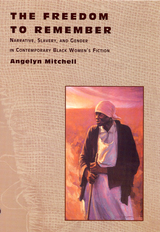
The Freedom to Remember examines contemporary literary revisions of slavery in the United States by black women writers. The narratives at the center of this book include: Octavia E. Butler’s Kindred, Sherley Anne Williams’s Dessa Rose, Toni Morrison’s Beloved, J. California Cooper’s Family, and Lorene Cary’s The Price of a Child.
Recent studies have investigated these works only from the standpoint of victimization. Angelyn Mitchell changes the conceptualization of these narratives, focusing on the theme of freedom, not slavery, defining these works as “liberatory narratives.” These works create a space to problematize the slavery/freedom dichotomy from which contemporary black women writers have the “safe” vantage point to reveal aspects of enslavement that their ancestors could not examine. The nineteenth-century female emancipatory narrative, by contrast, was written to aid the cause of abolition by revealing the unspeakable realitiesof slavery. Mitchell shows how the liberatory narrative functions to emancipate its readers from the legacies of slavery in American society: by facilitating a deeper discussion of the issues and by making them new through illumination and interrogation.
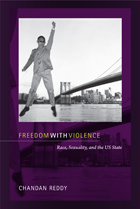
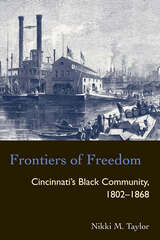
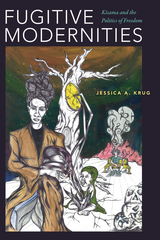
READERS
Browse our collection.
PUBLISHERS
See BiblioVault's publisher services.
STUDENT SERVICES
Files for college accessibility offices.
UChicago Accessibility Resources
home | accessibility | search | about | contact us
BiblioVault ® 2001 - 2024
The University of Chicago Press









